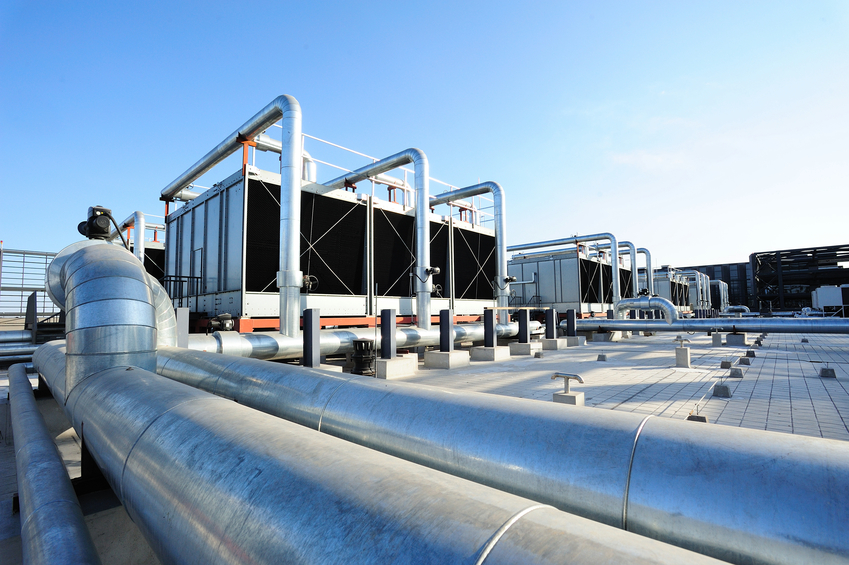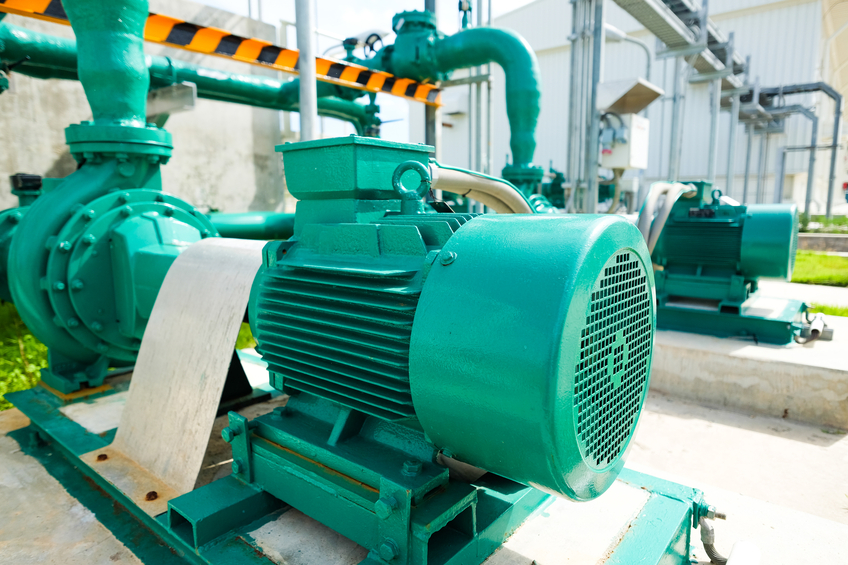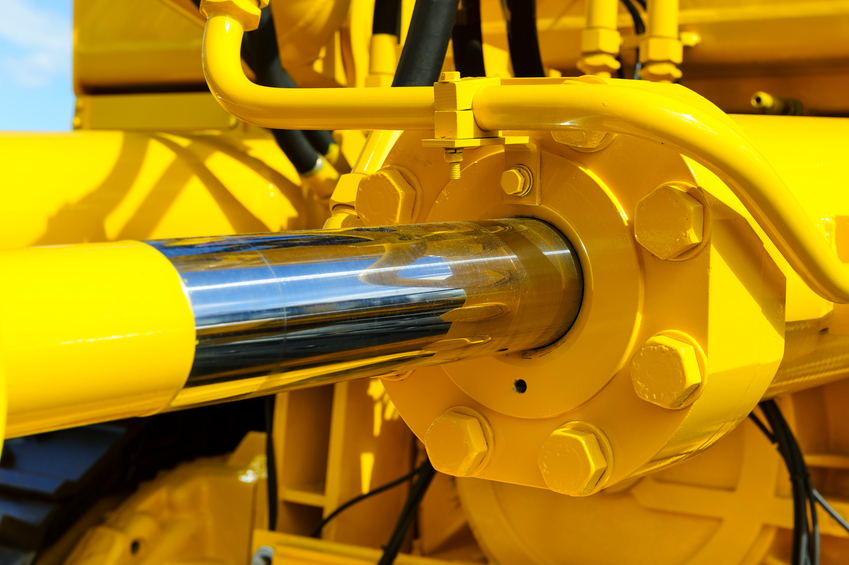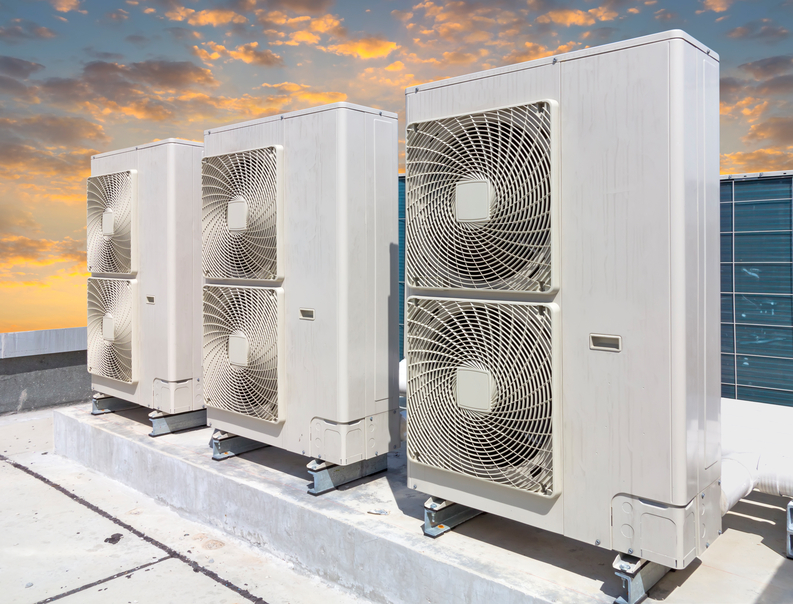New York Mechanical and Ethics 18 PDH Discount Package 2
Courses in this Package
Heat Exchangers (M02-001)
Centrifugal and Positive Displacement Pumps (M03-002)
Principles of Hydraulic and Pneumatic Systems (M04-043)
Introduction to Refrigeration Systems (M08-008)
Ethical Issue: Deciding if Something is a Gift or a Bribe (LE1-007)

This online engineering PDH course describes the construction of plate heat exchangers as well as tube and shell heat exchangers. It also describes the flow patterns and temperature profiles in parallel flow, counter flow, and cross flow heat exchangers.
The transfer of thermal energy between fluids is one of the most important and frequently used processes in engineering. The transfer of heat is usually accomplished by means of a device known as a heat exchanger. Common applications of heat exchangers include boilers, fan coolers, cooling water heat exchangers, and condensers.
This 2 PDH online course is applicable to mechanical and chemical engineers, nuclear facility operators, maintenance personnel, and technical staff to fully understand the impact that their actions may have on the safe and reliable operation of facility components and systems.
This PE continuing education course is intended to provide you with the following specific knowledge and skills:
- Understanding the purpose of heat exchangers
- Learning the different types of heat exchangers
- Understanding heat exchanger applications
In this professional engineering CEU course, you need to review DOE-HDBK-1018/1-93, Volume 1, Module 2 of "Mechanical Science" published by the Department of Energy.
Upon successful completion of the quiz, print your Certificate of Completion instantly. (Note: if you are paying by check or money order, you will be able to print it after we receive your payment.) For your convenience, we will also email it to you. Please note that you can log in to your account at any time to access and print your Certificate of Completion.

This online engineering PDH course explains the operation of centrifugal and positive displacement pumps. In general a pump is a mechanical device that is used to raise the flow of a fluid from one elevation to the other by increasing the pressure of the fluid.
Centrifugal pumps use a centripetal force, which is defined as the action that causes the fluid to move away from its center of rotation. Where as positive displacement pumps physically entrap a quantity of liquid at the suction of the pump and push that quantity out the discharge of the pump.
This 3 PDH online course is applicable to mechanical engineers, plant operators, maintenance personnel, and technical staff who are interested in gaining a better understanding centrifugal and displacement pump design and operation.
This PE continuing education course is intended to provide you with the following specific knowledge and skills:
- Learning the principle of operation of centrifugal and positive displacement pumps
- Learning the types and components of centrifugal and positive displacement pumps
- Understanding cavitation and cavitation prevention measures
- Performing Net Positive Suction Head calculations
- Understanding the characteristic curves of centrifugal and positive displacement pumps
- Understanding the protection methods of centrifugal and positive displacement pumps
In this professional engineering CEU course, you need to review DOE-HDBK-1018/1-93, Volume 1, Module 3 of Mechanical Science" published by the Department of Energy.
Upon successful completion of the quiz, print your Certificate of Completion instantly. (Note: if you are paying by check or money order, you will be able to print it after we receive your payment.) For your convenience, we will also email it to you. Please note that you can log in to your account at any time to access and print your Certificate of Completion.

This online engineering course presents the basic principles of hydraulics and pneumatics along with their various components followed by discussing the maintenance procedures associated with these systems.
In automotive and construction equipment, the terms “hydraulic” and “pneumatic” describe a method of transmitting power from one place to another through the use of a liquid or a gas which obey certain physical laws and principles discussed in this course.
This 4 PDH online course is intended for mechanical and industrial engineers, as well as other technical professionals interested in gaining a better understanding of the principles of hydraulic and pneumatics systems.
This PE continuing education course is intended to provide you with the following specific knowledge and skills:
- Understanding the operating principles of hydraulic systems
- Identifying operation characteristics, component functions, and maintenance procedures of a hydraulic system
- Understanding the operating principles of pneumatic systems
- Identifying operational characteristics and service procedures applicable to heavy-duty compressors
Upon successful completion of the quiz, print your Certificate of Completion instantly. (Note: if you are paying by check or money order, you will be able to print it after we receive your payment.) For your convenience, we will also email it to you. Please note that you can log in to your account at any time to access and print your Certificate of Completion.

This online engineering course provides necessary information to understand the principles and theory of refrigeration, the components of mechanical refrigeration systems, and the types of refrigerants and associated equipment. This course also discusses the methods used for installing, maintaining, and repairing refrigeration equipment, including domestic refrigerators and freezers.
Refrigeration is the process of removing heat from an area or a substance. It is usually done by an artificial means of lowering the temperature, such as by the use of ice or mechanical refrigeration, which is a mechanical system or apparatus, designed and constructed to transfer heat from one substance to another.
This 8 PDH online course is intended for HVACR, mechanical and industrial engineers, manufacturers, maintenance staff, and others seeking a basic understanding of refrigeration systems.
This PE continuing education course is intended to provide you with the following specific knowledge and skills:
- Understanding the physics behind heat and refrigeration
- Learning about the refrigeration cycle and its different mechanical components
- Familiarizing with the different types of refrigerants
- Understanding the safety precautions associated with refrigerants
- Familiarizing with the different types of refrigerant equipment
- Understanding the installation procedures for refrigerant equipment
- Learning about the maintenance, service, and repair procedures associated with refrigerant equipment
Upon successful completion of the quiz, print your Certificate of Completion instantly. (Note: if you are paying by check or money order, you will be able to print it after we receive your payment.) For your convenience, we will also email it to you. Please note that you can log in to your account at any time to access and print your Certificate of Completion.

This online engineering PDH course will establish, through the presentation of many examples, the principles of distinguishing between a gift and a bribe.
The federal government has formulated detailed rules covering gifts given to executive-branch employees in many situations. The rules are published in the Code of Federal Regulations (CFR) and are illustrated through many examples. Even though the examples are intended for government employees (many of whom are engineers), they also apply to private-sector engineers in similar situations. This course presents selected CFR examples that furnish guidance on the ethics of gift giving in situations that are especially relevant to engineers.
This 1 PDH online course is intended for engineers seeking guidance on distinguishing between ethical gift-giving and bribery.
This PE continuing education course is intended to provide you with the following specific knowledge and skills:
- Familiarizing with definitions of a bribe and a gift
- Knowing the bribe status of a gift based on a personal relationship
- Understanding the conditions under which gifts to spouses are acceptable
- Knowing the need to avoid even the appearance of a gift being a bribe
- Recognizing when gifts involving free attendance at meetings and conferences are acceptable
- Understanding the importance of the cumulative effect of receiving even small gifts on a periodic basis
- Learning the importance of gifts received when on assignment rather than outside of work
Upon successful completion of the quiz, print your Certificate of Completion instantly. (Note: if you are paying by check or money order, you will be able to print it after we receive your payment.) For your convenience, we will also email it to you. Please note that you can log in to your account at any time to access and print your Certificate of Completion.